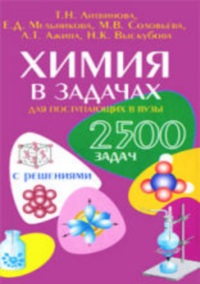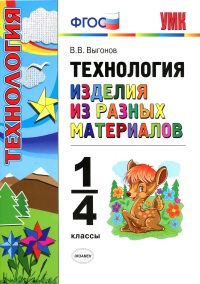John W. Johnson – Encyclopedia of Historic U.S. Court Cases (2nd edition)
495 ₽
Автор: John W. Johnson
Название книги: Encyclopedia of Historic U.S. Court Cases (2nd edition)
Формат: PDF
Жанр: Прочая историческая литература
Страницы: 653
Качество: Изначально компьютерное, E-book
This collection of essays looks at over 200 major court cases, at both state and federal levels, from the colonial period to the present. Organized thematically, the articles range from 1,000 to 5,000 words and include recent topics such as the Microsoft antitrust case, the O.J. Simpson trials, and the Clinton impeachment. This new edition includes 43 new essays as well as updates throughout, with end-of-essay bibliographies and indexes by case and subject/name.
The content and spirit of Historic U.S. Court Cases: An Encyclopedia, second edition,
reflect the blend of popular interest and specialized attention recently paid to American
law. The volume is designed to serve both the student and layperson interested in
learning about important American court cases as well as the legal specialist looking for a
convenient repository of case information, analyses, or references.
The original edition of Historic U.S. Court Cases, published in 1992, was compiled
between 1987 and 1991, a period bounded by the bicentennial celebrations of the U.S.
Constitution and the Bill of Rights. During these years a media spotlight was focused on
America’s founding legal document and the first ten amendments. This provided a
welcome civics lesson to the nation and offered encouragement and visibility to those of
us who teach and write about American law. The revised edition of this volume was
assembled in the late 1990s, at a time when much of the nation’s attention was fixated on
less lofty legal events than in the 1987–91 years. The scandals of the Clinton
administration and the ensuing impeachment crisis, depressing as they were, also focused
attention on the rule of law.
This volume, like the 1992 edition, is not an “encyclopedia” in the most common
sense of the word. Generally, when we think of an encyclopedia, we think of a
comprehensive, exhaustive, or complete compendium of information on a subject. No
single volume, no matter how large, could present a comprehensive, exhaustive, or
complete treatment of the thousands of U.S. court cases that experts might call “historic.”
However, there is another level for understanding the term “encyclopedia.” Dictionaries
and thesauruses note that an encyclopedia may also be a volume that offers an extensive,
thorough, or sweeping treatment of a subject. Readers familiar with the old International
Encyclopedia of the Social Sciences (IESS), published in 1968, and the even older
Encyclopedia of the Social Sciences (ESS), published in 1930, will understand this
meaning of “encyclopedia.” The essay/entries in the IESS and the ESS offer extensive
treatments of important social scientific concepts, written by experts. Obviously not all
social science concepts could be defined even in a multivolume set, so the editors of the
two projects selected some of the most important concepts in the social sciences and
commissioned the entries. The results are two sets of volumes that, although now dated,
are remarkably readable and provocative. They remain classic reference tools in
academic and public libraries.
It would be arrogant (and erroneous) to compare Historic U.S. Court Cases to the
IESS or the ESS. My volume is far less ambitious. But it is fair to say, I believe, that this
legal encyclopedia bears some resemblances to the two wellknown reference sets. Like
the IESS and the ESS, it is selective and not comprehensive. The essays are meant to
highlight major legal issues and concerns by concentrating attention on selected court
cases, rather than occupying the entire field of American law.
I have employed no single criterion for selecting a case for an essay/entry in this
volume. Some cases are obvious choices by virtue of their great impact as precedents in
American law. Likewise, some cases are featured because of their fame as important
historical events in and of themselves. In addition, some cases have been selected
because they are representative of a large body of important litigation. A few cases have
been selected for treatment because they are decidedly not typical; these cases reveal
interesting eccentricities in the American legal past. Other cases have been selected
because they raised or continue to raise significant historical or legal issues. Finally, a
few essays examine cases that showcase the role of a particularly famous jurist, lawyer,
or litigant.
A large number of the essays in this volume concern U.S. Supreme Court decisions.
The importance of the U.S. Supreme Court as the final arbitrator for legal disputes in this
country is obvious. However, some of the most influential cases in American history
were decided in the lower federal courts, the state courts, and (in the pre-Constitutional
era) in the colonial courts. Accordingly, some of these non-U.S. Supreme Court decisions
are the subjects of essays in the volume.
As was the case with the two aforementioned social science encyclopedias, the essays
in this volume were composed by individual contributors who were not hamstrung by
lock-step formulas or formats. The contributors were allowed, within the bounds of
stylistic consistency and the number of words prescribed, to sound their own voices and
stake out their own conclusions. There is no party line or standard of orthodoxy If there is
a thematic thread to the volume, it is as a result of my charge that essayists focus on the
narrative, dramatic dimension of legal disputes within their larger social and historical
contexts. Hence, the contributors were encouraged to stress the factual bases of disputes
and to emphasize provocative issues raised by litigation. They were also asked to place
their case (or cases) within the broader social milieu. How they chose to respond to these
general suggestions was left largely to their own devices. I provided model essays to the
contributors and, when asked, ventured suggestions or offered feedback. Then I edited
the contributions. For the most part, the only substantive changes I made in the
submissions were to correct factual errors. It is important to note that all of the essays that
appear in the Encyclopedia are original compositions; none were published elsewhere
prior to their appearance in this volume or the 1992 edition.
Based upon the advice of an advisory board, the suggestions of senior American legal
experts, and the serendipity of professional and personal contacts, I selected about eighty
scholars to prepare essays for the original volume. For the new essays in the revised
volume I contacted many of the same individuals plus a handful of new authors. In total,
eighiy-five different authors are represented in the revised edition. As was the case in the
assignments for the IESS and the ESS, efforts were made to cast the net widely. Because
some of the best writing about the law continues to be accomplished by nonlegal experts,
I did not want lawyers or legal historians preparing all the entries.






Отзывы
Отзывов пока нет.